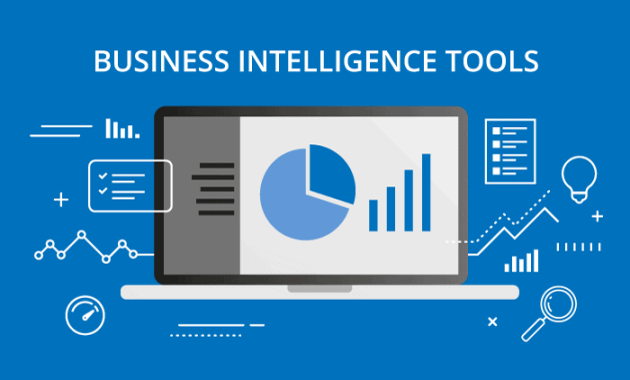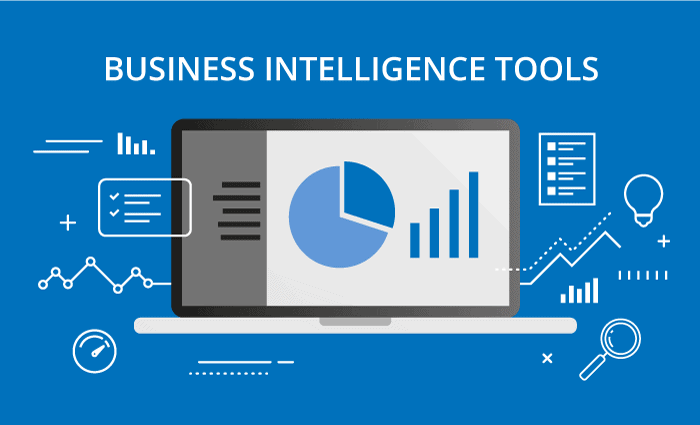
Discover Business Intelligence Software Used by Top Brands: Unveiling the Data-Driven Secrets of Success
In today’s hyper-competitive business landscape, data isn’t just an asset; it’s the lifeblood of informed decision-making. The ability to collect, analyze, and interpret vast amounts of information separates market leaders from the laggards. This is where business intelligence (BI) software steps in, providing the tools and insights necessary to drive strategic initiatives and achieve sustainable growth. This article delves into the world of business intelligence software used by top brands, exploring how they leverage data to gain a competitive edge and unlock their full potential. We’ll examine the key features, benefits, and real-world applications of these powerful platforms, offering a glimpse into the future of data-driven business.
The Rise of Data-Driven Decision Making
The shift towards data-driven decision-making has been nothing short of transformative. Companies are no longer relying solely on intuition or historical trends. Instead, they are using data to understand customer behavior, identify market opportunities, and optimize internal processes. This evolution has been fueled by several factors, including the exponential growth of data, advancements in technology, and the increasing sophistication of analytical tools. The availability of big data, coupled with the development of powerful business intelligence software, has empowered organizations to extract valuable insights from their data and make more informed decisions.
Key Features of Business Intelligence Software
Business intelligence software offers a wide range of functionalities designed to streamline data analysis and reporting. The specific features vary depending on the platform, but some common elements include:
- Data Integration: The ability to connect to various data sources, including databases, spreadsheets, cloud services, and social media platforms. This ensures that all relevant data is accessible in one centralized location.
- Data Warehousing: The storage and organization of data in a structured format, making it easier to query and analyze. Data warehousing is a critical component of effective BI.
- Data Visualization: Tools for creating interactive dashboards, charts, and graphs that present data in an easily understandable format. This allows users to quickly identify trends, patterns, and anomalies.
- Reporting: Capabilities for generating customized reports that provide insights into key performance indicators (KPIs) and other relevant metrics. Reporting is crucial for tracking progress and making data-backed decisions.
- Data Mining: Techniques for uncovering hidden patterns and relationships within large datasets. This can lead to valuable discoveries and new opportunities.
- Predictive Analytics: Features that use historical data to forecast future trends and outcomes. This helps organizations make proactive decisions and plan for the future.
Benefits of Using Business Intelligence Software
Implementing business intelligence software offers a multitude of benefits for organizations of all sizes. These advantages translate into improved efficiency, increased profitability, and a stronger competitive position. Some key benefits include:
- Improved Decision-Making: Data-driven insights provide a solid foundation for making informed decisions. This reduces the risk of relying on guesswork or intuition.
- Increased Efficiency: Automation of data analysis and reporting tasks frees up valuable time for employees. This improves productivity and reduces operational costs.
- Enhanced Customer Understanding: Analysis of customer data provides valuable insights into their preferences, behaviors, and needs. This allows companies to tailor their products and services to meet customer demands.
- Better Risk Management: Early identification of potential risks and challenges allows companies to take proactive measures to mitigate them. This can save time and resources.
- Competitive Advantage: The ability to make data-driven decisions provides a significant competitive advantage. This enables companies to stay ahead of the curve and outperform their rivals.
Business Intelligence Software Used by Top Brands: Case Studies
Many leading brands across various industries have embraced business intelligence software to gain a competitive edge. Here are a few examples of how top brands are using BI to achieve their goals:
Retail: Walmart
Walmart utilizes BI to analyze sales data, track inventory levels, and optimize its supply chain. This helps the retail giant to ensure that products are always available and to meet customer demand efficiently. The company uses this data to improve customer satisfaction. Walmart uses BI to personalize the shopping experience.
Technology: Apple
Apple leverages BI to analyze customer data, track product performance, and understand market trends. This information helps the tech giant develop innovative products, improve its marketing strategies, and stay ahead of the competition. Apple uses its BI data to improve brand loyalty.
Finance: JPMorgan Chase
JPMorgan Chase uses BI to monitor financial performance, manage risk, and detect fraud. This enables the financial institution to make informed investment decisions, protect its assets, and comply with regulatory requirements. The company uses BI to personalize customer experiences.
Healthcare: Mayo Clinic
The Mayo Clinic uses BI to analyze patient data, improve treatment outcomes, and optimize operational efficiency. This helps the healthcare provider to deliver better patient care and reduce healthcare costs. The clinic uses BI to conduct research.
Choosing the Right Business Intelligence Software
Selecting the right business intelligence software can be a complex process. Several factors should be considered when making a decision:
- Business Needs: Identify the specific business needs and goals that the software will address.
- Data Sources: Determine the types of data sources that need to be integrated with the software.
- Features: Evaluate the features offered by different software platforms and choose the ones that best meet your needs.
- Scalability: Ensure that the software can scale to accommodate future growth and data volume.
- Ease of Use: Select software that is user-friendly and easy to learn.
- Cost: Consider the cost of the software, including licensing fees, implementation costs, and ongoing maintenance expenses.
- Vendor Reputation: Research the vendor’s reputation and customer reviews.
Popular Business Intelligence Software Platforms
Several business intelligence software platforms are widely used by top brands. These platforms offer a range of features and capabilities, making them suitable for various business needs.
- Tableau: Known for its intuitive interface and powerful data visualization capabilities.
- Microsoft Power BI: A comprehensive BI platform that integrates seamlessly with other Microsoft products.
- Qlik Sense: Offers a unique associative data model and advanced analytics capabilities.
- Looker: A cloud-based BI platform that emphasizes data exploration and collaboration.
- SAP Analytics Cloud: A robust BI solution that offers a wide range of features and capabilities.
The Future of Business Intelligence
The future of business intelligence software is bright, with several trends shaping the industry. These trends are set to enhance the capabilities of the platforms. These innovations will transform how businesses use data.
- Artificial Intelligence (AI) and Machine Learning (ML): AI and ML are being integrated into BI platforms to automate data analysis, generate insights, and predict future trends.
- Cloud-Based BI: Cloud-based BI platforms are becoming increasingly popular due to their scalability, flexibility, and cost-effectiveness.
- Self-Service BI: Self-service BI tools empower business users to analyze data and generate reports without relying on IT professionals.
- Data Democratization: The trend of making data accessible to all employees, regardless of their technical skills.
Conclusion: Harnessing the Power of Data
Business intelligence software is an essential tool for organizations seeking to thrive in today’s data-driven world. By leveraging the power of data, businesses can gain a competitive advantage, improve decision-making, and achieve sustainable growth. As technology continues to evolve, BI platforms will become even more sophisticated, offering new opportunities for innovation and success. By understanding the features, benefits, and applications of business intelligence software used by top brands, businesses can position themselves for success in the years to come. It is the key to unlocking the full potential of the data.
[See also: Related Article Titles]

